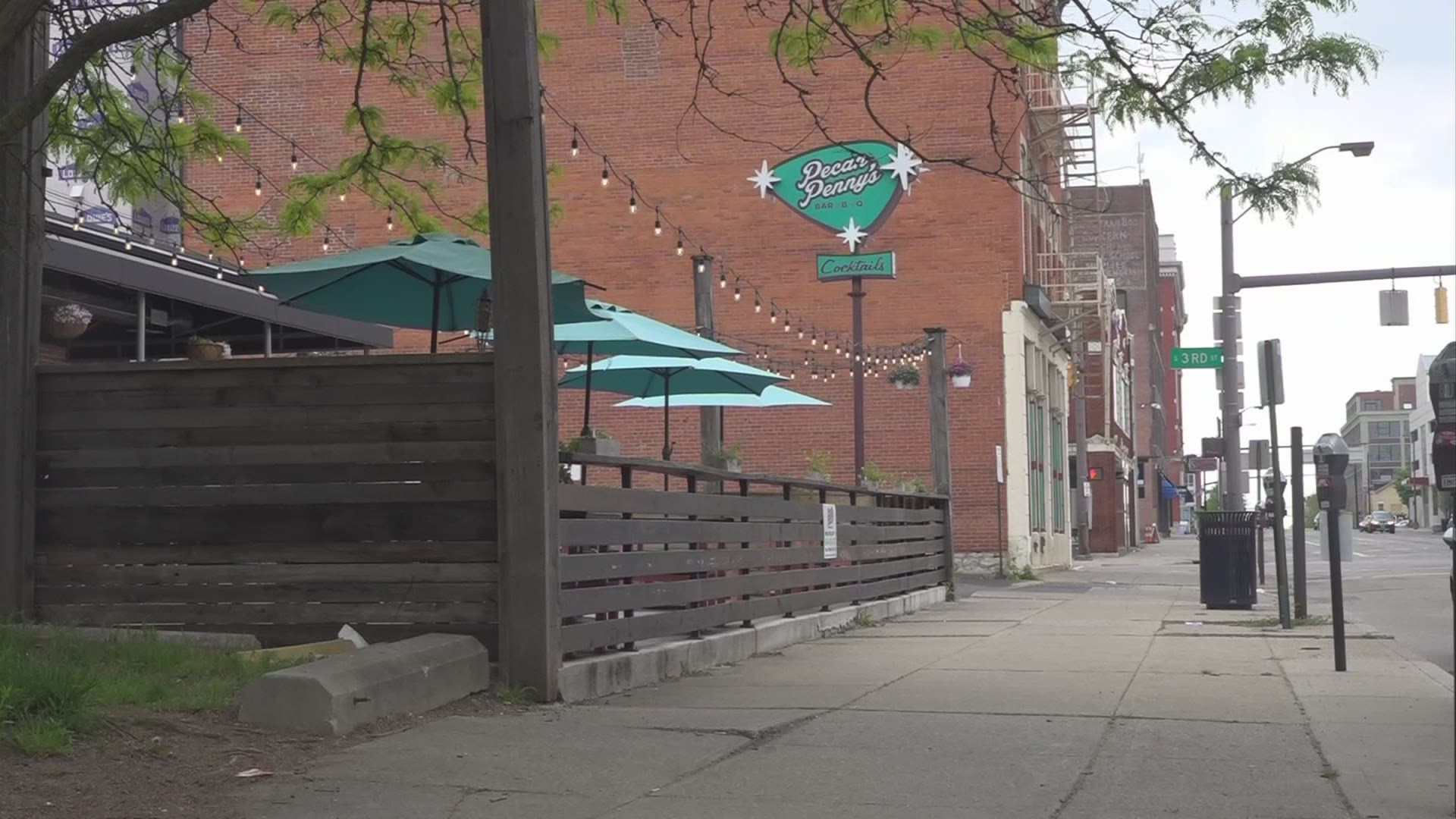COLUMBUS, Ohio — It's been a long 14 months for the restaurant industry. They've battled closures, changing mandates, and a major drop in consumer confidence. It's resulted in restaurants losing business, and some having to close.
Governor Mike DeWine made a major change on March 15, 2020, when he said “all bars in the state and all restaurants will close at 9 o'clock tonight. How long this order will be in effect, we don't frankly know.”
Dining rooms were closed and restaurants were only allowed to open for takeout and delivery.
“There really was no playbook,” said Adam Benner, president at Land-Grant Brewing.
The National Restaurant Association says it will take years for the industry to recover.
“Restaurants are really the corner stone of communities across the country. They occupy important pieces of real estate, second largest private sector employer pre-pandemic, huge drivers of downtown areas in terms of entertainment. People come to downtown areas and want to live in downtown areas and suburban areas because of restaurants, because of nightlife, because of culture,” said Mike Whatley, vice president of State Affairs and Grassroots Advocacy for the National Restaurant Association.
The Ohio Restaurant Association surveyed its members every couple weeks beginning in March to gauge the impact of the pandemic on the industry.
As of April 16, 2020, the survey said about 50% of restaurants statewide were closed.
“Because they're such thin profit margins, they don't have businesses they don't have huge hordes of cash or bank accounts to draw on,” said Whatley.
But restaurants were fighting. On April 29, 2020, just 2% of Ohio restaurants were permanently closed.
Currently across the country, the National Restaurant Association says that number is 17%.
“I was living in some form of fear anxiety stress depression every single day,” said Catie Randazzo, an owner of Ambrose & Eve.
Ambrose & Eve opened in 2018 and closed in November.
“It was a pandemic, what could you do? The odds got stacked against me at a time when the restaurant was young,” said Randazzo.
While Ambrose & Eve had to close, Pecan Penny's and Land-Grant Brewing have been able to survive.
“I think last year we were down about 70% compared to the previous year,” said Benner.
“Probably 20% of what we are normally functioning on,” said Maritt Baessin, general manager at Pecan Penny’s.
Both businesses took out PPP loans, both were forced to let go of employees, and both needed to get creative to stay afloat.
On June 4, the Ohio Restaurant Association said two-thirds of restaurants were selling to-go cocktails, back at home foods or meal kits to help supplement loss of sales. Land-Grant began doing home delivery for beer.
“From our owners down to taproom employees [were] driving around beer,” said Benner.
Fast forward to March 15 of this year when Columbus restaurants were allowed to open street dining.
According to the Ohio Restaurant Association's latest poll, 38% of restaurants are reporting positive sales.

